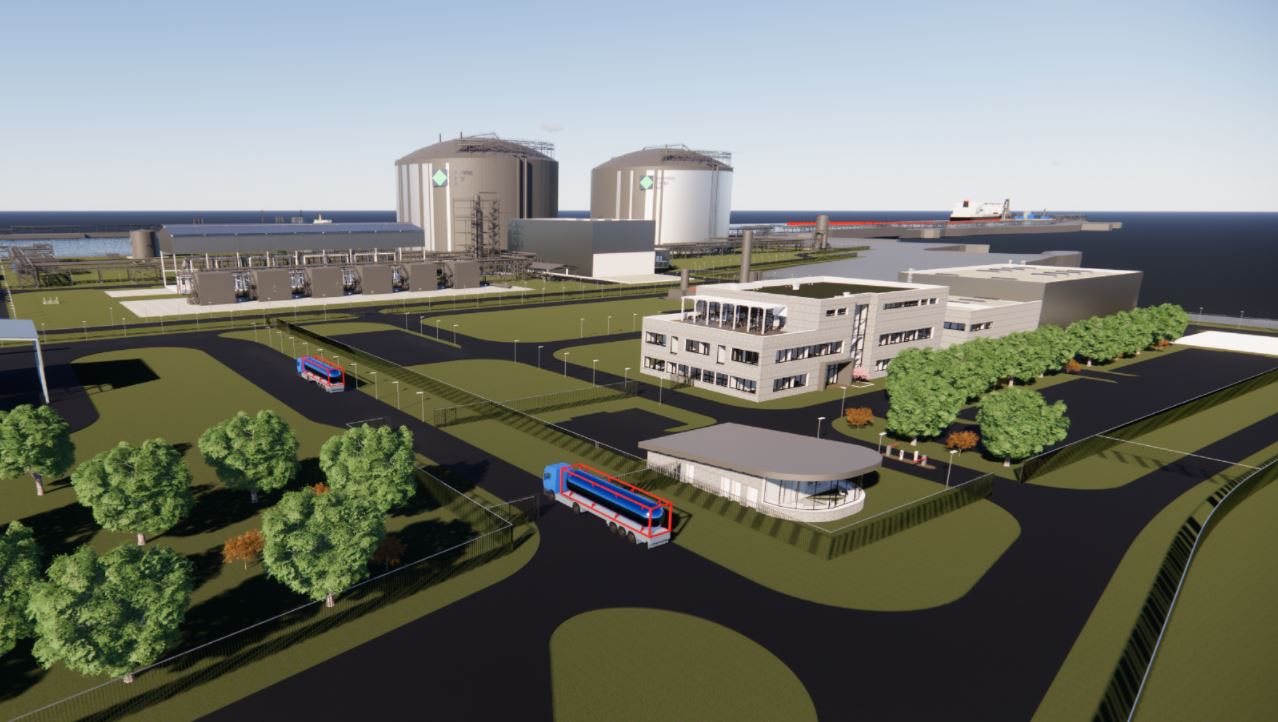Germany’s Hanseatic Energy Hub has awarded the engineering, procurement and construction deal for its Stade LNG import terminal near Hamburg to a consortium led by Spain’s Tecnicas Reunidas.
Other consortium partners are Spain’s FCC Group and Entrade, a unit of Turkey’s Enka, HEH said on Tuesday.
The LNG terminal developer said that the deal remains subject to the firm taking a final investment decision on the project worth about 1 billion euros ($1.09 billion).
According to HEH, the consortium consisting of Fluxys, Dow, Partners Group, and Buss Group plans to take FID for the terminal with a regasification capacity of 13.3 Bcm per year in summer 2023.
The privately-organized terminal project is intended to help secure Germany’s supply of LNG and green gases from 2027 and at the same time prepare for the market ramp-up of hydrogen, it said.
HEH said the infrastructure and commercial marketing of the hub are designed in such a way that a move to ammonia can take place in a “future-flexible” manner.
Consortium
Tecnicas Reunidas said in a separate statement that its scope of work awarded under the contract is worth about 500 million euros ($548 million) and the other 500 million euros will go to FCC and Entrade.
The project includes two phases and the first stage consists of preliminary works and engineering with a duration of 5 months, according to the Madrid-based firm.
The second stage constitutes of the main contract, which is subject to FID.
Tecnicas Reunidas said it will design the regasification terminal and the two storage tanks, each with a capacity of 240,000 cbm, and will undertake all the equipment and materials supply work for the project.
Moreover, FCC will build the tanks and will carry out all site preparation and civil works activities for the plant, while Entrade will be in charge of the electromechanical assembly activities.
“Our choice of EPC partners is based on many years of experience in the construction of complex infrastructure projects and comprehensive technical expertise in LNG, green gases and hydrogen”, Johann Killinger, managing director and co-shareholder of HEH, said in the statement.
FSRU
Prior to the launch of the onshore LNG import terminal, Stade will welcome its first FSRU as part of Germany’s plans to boost energy security and replace natural gas pipeline imports from Russia.
HEH expects the completion of the new LNG jetty in Stade by the end of 2023.
Also, German port firm Niedersachsen Ports (NPorts) is responsible for planning and implementation of the new jetty and officially started building the new infrastructure on January 20.
Following completion, the jetty will welcome the 170,000-cbm FSRU Transgas Force, owned by Dynagas, in winter 2023/2024.
The German government, helped by Uniper, RWE, and a consortium of Engie, TES, and E.ON chartered in total five FSRUs that will serve as import terminals in Wilhelmshaven, Brunsbuettel, Stade, and Lubmin.
Uniper and RWE have already installed Hoegh LNG’s FSRUs in Wilhelmshaven and Brunsbuettel, while Deutsche Regas launched its FSRU-based LNG import terminal in Lubmin, the first private facility in Germany.
The next three government-backed FSRU will be placed in Stade, Lubmin, as well as Wilhelmshaven.
As per land-based facilities, besides the Stade LNG import facility, a unit of French construction company Vinci and Sener won an engineering, procurement, and construction contract last year for the onshore LNG import facility in Brunsbuettel, which is being developed by German LNG Terminal.

